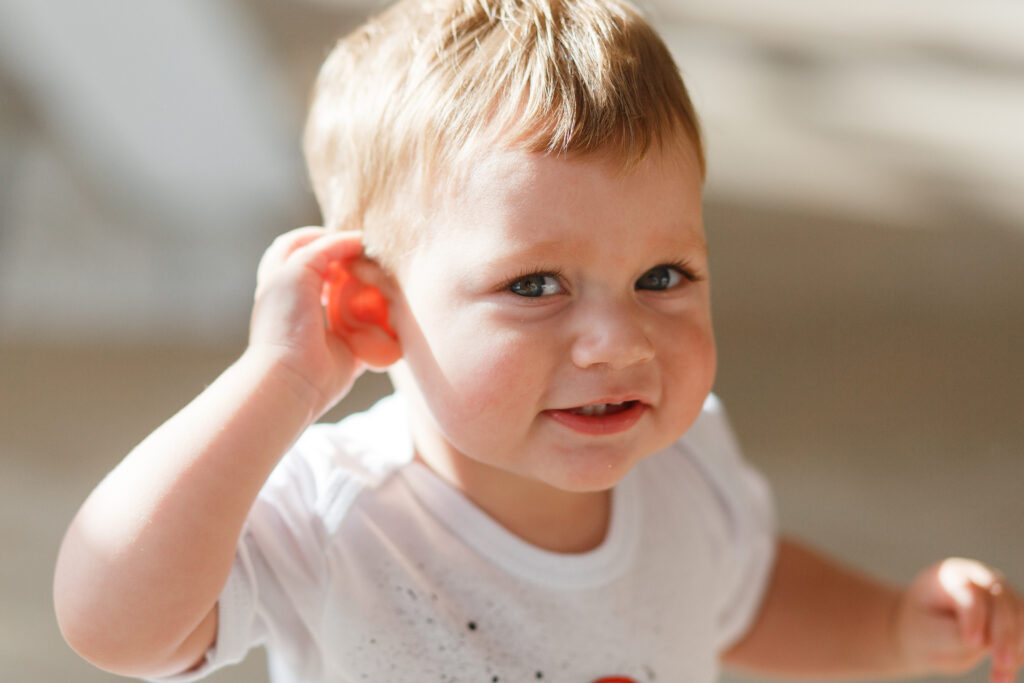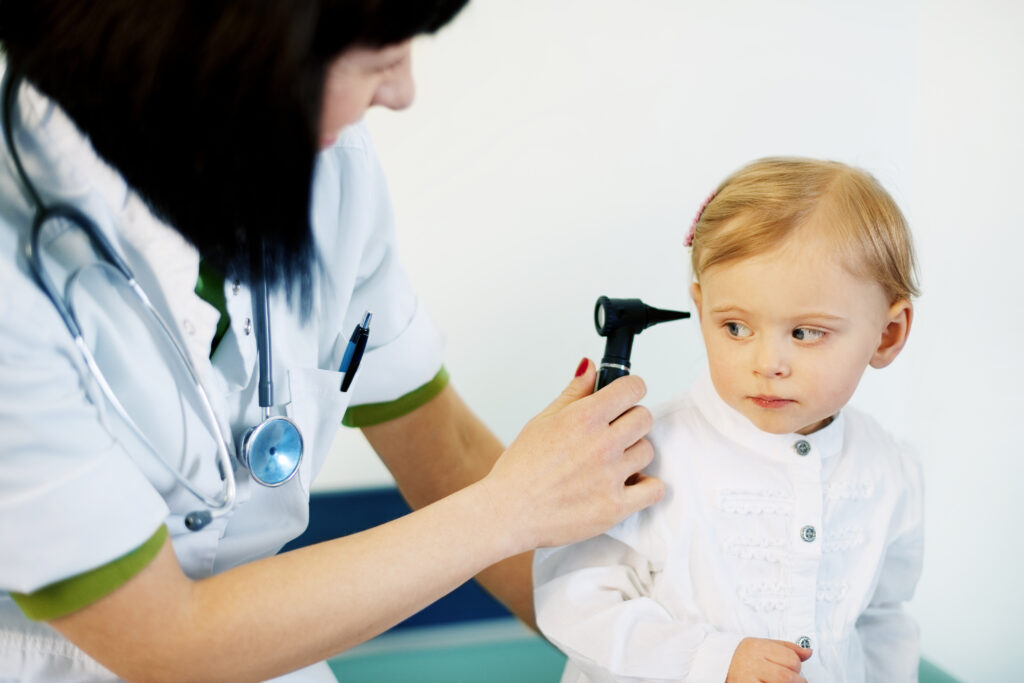
As a new mom, your world revolves around your precious little one. You become attuned to every gurgle, coo, and cry, and these tiny sounds become a symphony of your baby’s health and development. But what if some of those sounds are going unheard? Early detection of hearing loss is crucial for a child’s speech, language, and social development.
This article will equip you with the knowledge to identify signs of hearing loss in your baby and guide you towards seeking professional help.
What is Hearing Loss?
Hearing loss is a partial or complete inability to detect sound. It can be caused by various factors, broadly categorized into two main types:
- Conductive Hearing Loss: Blockage in the outer or middle ear prevents sound waves from reaching the inner ear. This can be due to earwax buildup, ear infections, or a perforated eardrum.
- Sensorineural Hearing Loss (SNHL): Damage to the inner ear or the auditory nerve hinders the transmission of sound signals to the brain. This type of hearing loss can be permanent.
Signs to Watch Out For:
Newborns typically undergo a hearing screening before leaving the hospital. However, it’s important to remain vigilant throughout your baby’s development. Here are some signs of hearing loss to look out for at different age ranges:
- Newborns (0-3 Months):
- Doesn’t startle or react to loud noises.
- Doesn’t seem to soothe to your voice.
- Babies (3-6 Months):
- Doesn’t turn their head towards new sounds.
- Doesn’t babble or vocalize.
- Doesn’t respond to changes in your tone of voice (e.g., soothing vs. playful).
- Infants (6-12 Months):
- Doesn’t babble different sounds together.
- Doesn’t understand simple words like “no” or “bye-bye.”
- Doesn’t seem to recognize their name when called.
- Toddlers (1-3 Years):
- Has difficulty understanding simple instructions.
- Speaks with unclear pronunciation.
- Seems withdrawn or disinterested in conversations.

Importance of Early Intervention:
If you notice any of these signs, it’s crucial to consult your pediatrician. They can perform a hearing exam to assess your baby’s hearing ability. Early diagnosis allows for prompt intervention, which can significantly improve your child’s speech, language, and social skills. Depending on the type and severity of the hearing loss, treatment options may include:
- Medical intervention to address underlying causes like ear infections.
- Hearing aids to amplify sound and improve hearing ability.
- Cochlear implants for severe SNHL.
Can I Test My Baby’s Hearing at Home?
While there’s no substitute for a professional hearing examination, there are some online resources that claim to offer hearing screening online or ear tests online. These online hearing checks should not be used for definitive diagnosis. They can provide a very basic assessment, but a comprehensive hearing test conducted by a qualified audiologist is necessary for accurate results.
Taking Action for Your Baby’s Hearing Health:
Early detection is key! By familiarizing yourself with the signs of hearing loss and seeking professional help if any concerns arise, you can ensure your baby has the opportunity to thrive and reach their full potential. Remember, the sooner hearing loss is identified, the sooner your child can receive the support they need to hear the beautiful sounds of the world around them.
So, has your baby had their latest hearing screening?

